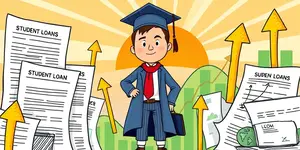Refinancing your mortgage can feel like navigating a maze of numbers, fees, and deadlines. Yet, for many homeowners, it represents a golden opportunity to reshape their financial future. In 2025’s evolving market, understanding each step of the process will empower you to make choices with clarity and calm.
What Is Mortgage Refinancing?
At its core, mortgage refinancing means replacing your existing home loan with a new one. Whether you aim to secure a lower rate, change your loan term, or tap into your equity, refinancing can realign your mortgage with your current goals.
Essentially, you apply for a new loan that pays off the old one. The terms of the new loan may differ in interest rate, duration, payment schedule, or loan structure.
Top Reasons to Refinance in 2025
- Mortgage rates have stabilized at historically low levels, offering a chance for locking in a lower mortgage rate.
- Home values have climbed, giving many homeowners more than 20% equity and enabling them to drop private mortgage insurance.
- Shorter loan terms like 15-year mortgages are now competitively priced, helping accelerate debt payoff.
Types of Home Loan Refinancing
- Rate-and-Term Refinance: Adjust your interest rate, loan term, or both to better match your financial plan.
- Cash-Out Refinance: Borrow against your home’s equity to fund renovations, education, or high-interest debt consolidation.
- Streamline Refinance: Available for FHA and VA loans, this option reduces paperwork and appraisal requirements.
Financial Benefits & Potential Drawbacks
When done wisely, refinancing can unlock significant savings. Lower interest rates translate into reducing your monthly payment burden. A shorter term loan could shave decades off your payoff timeline.
- Rate reduction of at least 1% can deliver thousands in interest savings over the loan’s life.
- Eliminating PMI when equity exceeds 20% can cut hundreds from your monthly bills.
- Accessing equity via cash-out can fund major projects without high-interest credit cards.
However, beware of potential pitfalls. Closing costs generally run 2–6% of the loan amount. If you plan to sell soon, it may take years to recoup those upfront fees. Overborrowing against your home can also leave you vulnerable if property values decline.
Is Now the Right Time for You?
Timing a refinance requires clear-headed analysis. Follow these steps to gauge whether you’ll benefit:
- Calculate your break-even point by dividing estimated closing costs by your expected monthly savings.
- Assess how long you intend to stay in the home. Staying beyond the break-even period maximizes savings.
- Ensure any new loan term aligns with your retirement or major life plans.
The Step-by-Step Refinancing Process
Moving through refinancing is a series of well-defined steps. Preparation and attention to detail ensure you maintain momentum and avoid surprises.
- Check your credit score: Aim for 740+ to secure the best rates; 620 is often the minimum for most lenders.
- Gather documentation: Pay stubs, tax returns, asset statements, debt records, and the original mortgage paperwork.
- Shop around: Compare rate quotes, fees, and lender reputations to find your ideal match.
- Order an appraisal: Many lenders require a fresh valuation to confirm your home’s equity.
- Underwriting and approval: Respond promptly to any additional requests to keep your timeline tight.
- Closing day: Review and sign documents, pay closing costs, and transition seamlessly to your new loan.
How to Prepare: Credit, Documents, Lenders
Your credit score and debt-to-income ratio play starring roles in your refinance outcome. Keep your DTI below 43% and pay down high-interest debts before applying.
While collecting paperwork, review your original mortgage details. Knowing your current rate, balance, and term helps you set realistic goals for the new loan.
Don’t rush lender selection. Focus on transparency around fees, responsiveness to questions, and willingness to explain each charge.
FAQs and Pro Tips
Q: How much equity do I need? A: Aim for at least 20% equity to avoid PMI and unlock the best terms.
Q: Will refinancing hurt my credit? A: The application triggers a hard inquiry, causing a minor short-term dip, but long-term benefits often outweigh the temporary impact.
Pro Tip: Always request a loan estimate in writing. Compare not only the interest rate but also the Annual Percentage Rate (APR), which includes fees.
Pro Tip: Improve your credit score by correcting errors on your report and paying down revolving balances at least two months before applying.
Pro Tip: If you’re refinancing for cash-out, confirm tax deductibility of interest with a qualified professional to avoid surprises at filing time.
Final Thoughts
Refinancing is more than a financial transaction—it’s a strategic decision that can empower you to reclaim control over your home and money. By following a structured process, aligning your objectives, and seeking expert guidance when needed, you can move forward with understanding the true cost of refinancing and maximize the rewards.
With harnessing built-up equity in your home and preparing strong documentation for lenders, you’ll position yourself for success. The keys to confidence lie in preparation, knowledge, and timing. Now is your moment to take charge of your mortgage and unlock a more secure financial future.
References
- https://www.peoplesbankdirect.com/blog/post/should-you-refinance-your-mortgage-in-2025-
- https://www.cbsnews.com/news/will-you-be-able-to-refinance-your-mortgage-in-2025-what-experts-think/
- https://kwikmtg.com/refinancing-your-mortgage-in-2025-is-it-the-right-move-for-you/
- https://themortgagereports.com/51755/should-i-refinance-for-quarter-percent-lower-refinance-rates
- https://www.tidewatermortgage.com/news_blog/2025_year_of_refinance/
- https://www.associatedbank.com/education/articles/personal-finance/financial-planning/refinancing-your-home-loan
- https://www.experian.com/blogs/ask-experian/how-to-refinance-a-home-mortgage/
- https://www.arthurstatebank.com/blog/should-you-refinance-your-mortgage-in-2025/










